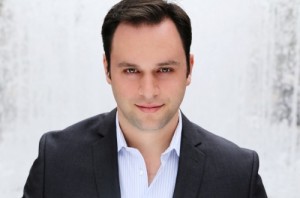Last week when Kendrick Lamar was awarded the Pulitzer Prize for music, my Twitter feed was instantly filled with woke-classical- music-twitter chastising anyone who complained that a rapper won rather than a classical composer. I still haven’t actually seen anyone complaining about the award, just a vociferous preemptive strike against traditionalists and/or elitists and/or racists who don’t approve.
Well, now they have an actual target to train their ammo on: me. I am disappointed that the Pulitzer did not go to a classical or jazz composer. I am disappointed not because I think that Kendrick Lamar isn’t one of the most important artists (as in “artists.” period) of his generation. I love the album Damn. and have been listening to it regularly since June. Also, Black Panther is maybe my favorite movie ever, and his soundtrack for it was a huge part of its appeal. I even risk my three-year- old daughter dropping f-bombs at nursery school because I am willing to corrupt her vocabulary and those of her little classmates because that’s how important I think her knowing something about Damn. and the Black Panther soundtrack in the year of their creation is. But that doesn’t mean I am excited about Kendrick winning the Pulitzer this year.
As long as I have been paying attention to the Pulitzer Prize in music, I have valued it for the attention it provides to American composers who spend careers toiling in obscurity to create genuinely new pieces of music. And yes, I am most certainly chauvinistic and self-interested in this because I choose to make performing new music a central part of the work of my career. But I have made that decision because I truly believe that in order for the body and culture of classical music to continue to grow, adapt, and speak to our time in our time, we must support composers and their works in whatever way we can. I believe this because times change and we as a species will always need composers taking on the huge challenge of creating something new that speaks to experience that we as a people have not known before. Mozart could never have guessed that the Turks and Kurds and Isis would be at war 230 years after he wrote Abduction from the Seraglio. Schubert had no notion of how climate change might impact a February hike when he wrote Winterreise. Wagner never knew a world with Hitler in it when he wrote Meistersinger. My point is that such masters and their masterpieces are treasures indeed, but although their beauty and genius is immutable, their inspiration, context, and meaning cannot expand beyond the borders of the time within which they were conceived. So we will always need classical composers to innovate a musical language that can speak to its time in a way that no piece written before could have.
The Pulitzer prize has always been—in my view—the single most powerful tool (by a long shot) in American culture to turn attention to and confer a mark of excellence on classical composers who have no other comparable way to become known by the wider public. Kendrick Lamar is one of the most famous and celebrated musicians and composers in America, if not the world. Hip Hop is one of the most popular, if not the THE most popular genre of music in America. Damn. is Kendrick’s third consecutive no. 1 selling album. Kendrick has won 87 music awards, including 12 Grammys. He has been a guest at the White House multiple times, and is one of the most powerful people in the music industry thanks to his genuine accomplishment. So why the hell would the Pulitzer Prize Committee confer its prestigious honor on one of the most feted, successful, and famous musical stars of 2017? Why point your spotlight at the sun?! In my opinion, the Pulitzer Prize can do something so much more valuable by bringing attention to classical composers who are creating great new music but who do not have large audiences.
My song of the day is by one of the finalists for this year’s Pulitzer in music, Ted Hearne. I picked this piece, “Letter to My Father” from Coloring Book not only because I think it is brilliant, truly original, superbly written and beautiful, but also because I came to know it because I got interested in the music of another Pulitzer winner, Caroline Shaw. Coloring Book was written for the vocal octet, Room Full of Teeth, of which Caroline Shaw is a member of and for which she wrote her 2013 Pulitzer Prize winning composition Partita for 8 voices. I started listening to Caroline and following her career because I learned about her and her music from the Pulitzer award. She has been given so many opportunities to create new work thanks to the stamp of excellence that the Pulitzer conferred on her. Without the award, I and (much more importantly) many people in a position to commission new works may never have even heard of her. But she has taken great advantage of the opportunities the Pulitzer afforded her and has be able to grow hugely as an artist since 2013.
And it is because I follow her that I came to know today’s song of the day.
I won’t say much about Ted’s amazing song here, but please check out this description of the work from his website. The way he writes for this unique ensemble creates a harmonic and sonic beauty unlike anything I have ever heard before. Of course, it harkens back to polyphonic vocal writing such as one of my all time favorite songs, Perotin’s “Viderunt Omnes.”
Ted’s song plays a role in the tradition of what we call classical music going back to its origins, and yet is startlingly fresh and original. He uses the human voice and this specific ensemble with imagination and a language that is his alone. This is the kind of work that I think the Pulitzer Prize should use its prestige to lift up and draw attention to. By doing so, it not only helps the composer who wins the prize, but offers guidance and connectivity to the classical music world at large, fosters engagement and a conversation among the entire community about artists that generally do not have a major platform to display their work.



0 Comments